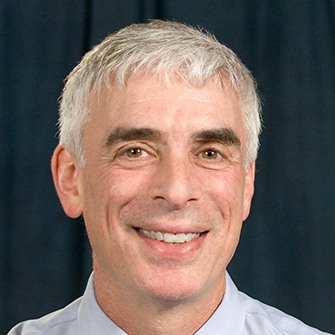Gastrointestinal Cancer
Leadership
-

Alexander Raufi, MD
Assistant Professor of Medicine -

Howard Safran, MD
Associate Director for Clinical Research; Co-Leader, Cancer Therapeutics Program
Dr. Alexander Raufi is a hematologist/oncologist specializing in gastrointestinal oncology at the Brown University Health Cancer Institute. He serves as Director of the Gastrointestinal Clinical Trials Program and Assistant Professor of Medicine at The Warren Alpert Medical School of Brown University. Dr. Raufi’s research focuses on novel immunotherapy combinations and preventive strategies for gastrointestinal malignancies. He is a recipient of the Conquer Cancer Foundation/ASCO Young Investigator Award and is an active member of ASCO and AACR.
Dr. Howard Safran is Director of the Division of Hematology/Oncology at Brown and Medical Director of the Brown University Oncology Group. A national leader in gastrointestinal cancer research, he developed several practice-changing regimens, including weekly paclitaxel, carboplatin, and radiation for esophageal cancer, and contributed to the advancement of total neoadjuvant treatment in rectal cancer. He has led pivotal Phase III trials in pancreatic, gastric, and colorectal cancers and has been deeply involved in the development of novel targeted and immunotherapies, including HER2-directed agents and KRAS-targeted therapies. Dr. Safran has authored more than 120 peer-reviewed publications and continues to shape the field of GI oncology through clinical trial innovation.
About TRDGs
Translational Research Disease Groups (TRDGs) provide a regular forum for advancing translational cancer research and fostering collaboration across disciplines. Eight TRDGs have been established at the Legorreta Cancer Center, each organized around a specific cancer type.
The Gastrointestinal Cancer TRDG brings together a multidisciplinary team of researchers and clinicians, including experts in:
- Hematology/oncology, radiation oncology, and surgical oncology
- Pathology, cancer biology, genetics, population science, biostatistics, and bioinformatics
- Fellows, residents, and student trainees
Our meetings create opportunities to:
- Develop and prioritize new translational research directions
- Share resources and expertise across Brown and affiliated hospitals
- Launch collaborations that can lead to pilot funding, extramural grant applications, and publications in high-impact journals
- Advance investigator-initiated clinical trials and translational protocols
TRDGs meet every 2–3 months, typically at the Brown University Molecular Medicine Building (70 Ship Street) or at an affiliated hospital site. Meetings feature a mix of roundtable discussions and designated speakers, with ample time for feedback and collaborative planning. Minutes are shared internally with group members.
Membership is open and evolving. We welcome faculty, fellows, residents, and students with an interest in translational breast cancer research to join our efforts.
Standing Agenda for TRDG Roundtable Meetings
- Review ongoing translational research and investigator-initiated trials
- Identify collaboration opportunities based on current science and feasibility
- Discuss biomarkers, tumor signaling pathways, and drug development strategies
- Exchange information on funding opportunities (e.g., P01s, SPOREs, or other translational grants)
- Highlight progress through focused presentations by investigators or subgroups
- Leverage institutional resources (genomics, tissue banks, clinical trial infrastructure, tumor boards)
- Engage trainees and early-career researchers in translational projects
- Form working groups to advance projects toward new protocols, grant submissions, and publications
Contact
For more information or to join the Gastrointestinal Cancer TRDG, please contact Attila Seyhan, PhD.
-

Attila Seyhan, PhD
Director of Operations - Translational Oncology, Legorreta Cancer Center, Adjunct Associate Professor of Pathology and Laboratory Medicine -

Sendurai Mani, PhD
Director for Translation, Asoociate Director for Translational Oncology, Legorreta Cancer Center